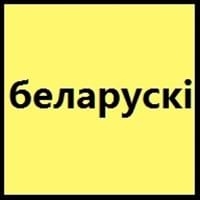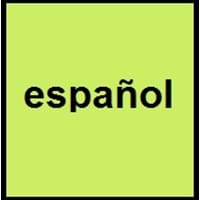Countries
Belarus, Poland
Andora, Argentina, Aruba, Australia, Belize, Bolivia, Brazil, Canada, Chile, Colombia, Costa Rica, Cuba, Dominican Republic, Ecuador, El Salvador, Equatorial Guinea, France, Gibraltar, Guatemala, Honduras, Jamaica, Latvia, Luxembourg, Mexico, Morocco, Namibia, Netherlands Antilles, New Zealand, Nicaragua, Norway, Panama, Paraguay, Peru, Philippines, Puerto Rico, Russia, Spain, Sweden, Switzerland, Trinidad and Tobago, Turkey, United Kingdom, United States of America, Uruguay, Venezuela, Western Sahara
National Language
Belarus, Gambia
Spain
Second Language
Poland
Andora, Aruba, Australia, Austria, Belgium, Belize, Brazil, Bulgaria, Canada, Denmark, France, Germany, Ireland, Israel, Italy, Jamaica, Luxembourg, Morocco, Netherlands, Netherlands Antilles, New Zealand, Philippines, Poland, Portugal, Romania, Russia, Slovenia, Switzerland, Trinidad and Tobago, Turkey, United Kingdom, United States of America, US Virgin Islands
Speaking Continents
Asia
Africa, Asia, Europe, North America, South America
Minority Language
Czech Republic, Lithuania, Ukraine
Brazil, France, Germany, Italy, Japan, Morocco, United Kingdom
Regulated By
National Academy of Sciences of Belarus, National Languages Committee
Asociación de Academias de la Lengua Española
Interesting Facts
- Since 1918, Belarusian has been the official language of Belarus.
- Belarusian include many loanwords from Polish language.
- One of the world's most phonetic language is Spanish.
- Up to the 18th century, Spanish was diplomatic language.
Similar To
Russian and Ukrainian
French Language
Derived From
Not Available
Latin
Alphabets in
Belarusian-Alphabets.jpg#200
Spanish-Alphabets.jpg#200
Writing Direction
Not Available
Left-To-Right, Horizontal
Language Levels
Not Available
Time Taken to Learn
Not Available
Thank You
Dziakuj
Gracias
How Are You?
Jak vy ?
Cómo estás?
Good Night
Dabranač
Buenas Noches
Good Evening
Dobry viečar
Bonne soirée
Good Afternoon
dobry dzień
Buenas Tardes
Good Morning
Dobraj ranicy
Buenos Días
Please
Kali laska
Por Favor
I Love You
JA liubliu ciabie
Te Quiero
Excuse Me
Vybačajcie
Discúlpeme
Dialect 1
North-Eastern Belarusian
Mexican Spanish
Where They Speak
North-East Belarus
Mexico
How Many People Speak
Not Available
Dialect 2
South-Western Belarusian
Cuban Spanish
Where They Speak
South-West Belarus
Cuba
How Many People Speak
Not Available
Dialect 3
Middle Belarusian
Puerto Rican Spanish
Where They Speak
Middle Belarus
Puerto Rico
How Many People Speak
Not Available
Native Name
Беларуская мова (Bielaruskaja mova)
Español
Alternative Names
Belarusan, Belorussian, Bielorussian, Byelorussian, White Russian, White Ruthenian
Castellano, Castilian, Español
French Name
biélorusse
espagnol; castillan
German Name
Weißrussisch
Spanisch
Pronunciation
Not Available
[espaˈɲol], [kasteˈʎano]
Ethnicity
Belarusians
Not Available
Origin
18th century
210 BC
Language Family
Indo-European Family
Indo-European Family
Branch
Eastern
Not Available
Early Forms
Old East Slavic
Old Spanish and Spanish
Standard Forms
Belarusian
Pluricentric Standard Spanish
Signed Forms
Not Available
Signed Spanish
Scope
Individual
Individual
ISO 639 6
Not Available
Not Available
Glottocode
bela1254
stan1288
Linguasphere
53-AAA-eb < 53-AAA-e (varieties: 53-AAA-eba to 53-AAA-ebg)
51-AAA-b
Language Type
Living
Living
Language Linguistic Typology
Not Available
Subject-Object-Verb
Language Morphological Typology
Not Available
Fusional, Synthetic
Belarusian and Spanish Greetings
People around the world use different languages to interact with each other. Even if we cannot communicate fluently in any language, it will always be beneficial to know about some of the common greetings or phrases from that language. This is where Belarusian and Spanish greetings helps you to understand basic phrases in Belarusian and Spanish language. Belarusian word for "Hello" is dobry dzień or Spanish word for "Thank You" is Gracias. Find more of such common Belarusian Greetings and Spanish Greetings. These greetings will help you to be more confident when conversing with natives that speak these languages.
Belarusian vs Spanish Difficulty
The Belarusian vs Spanish difficulty level basically depends on the number of Belarusian Alphabets and Spanish Alphabets. Also the number of vowels and consonants in the language plays an important role in deciding the difficulty level of that language. The important points to be considered when we compare Belarusian and Spanish are the origin, speaking countries, language family, different greetings, speaking population of these languages. Want to know in Belarusian and Spanish, which language is harder to learn? Time required to learn Belarusian is Not Available while to learn Spanish time required is 24 weeks.





